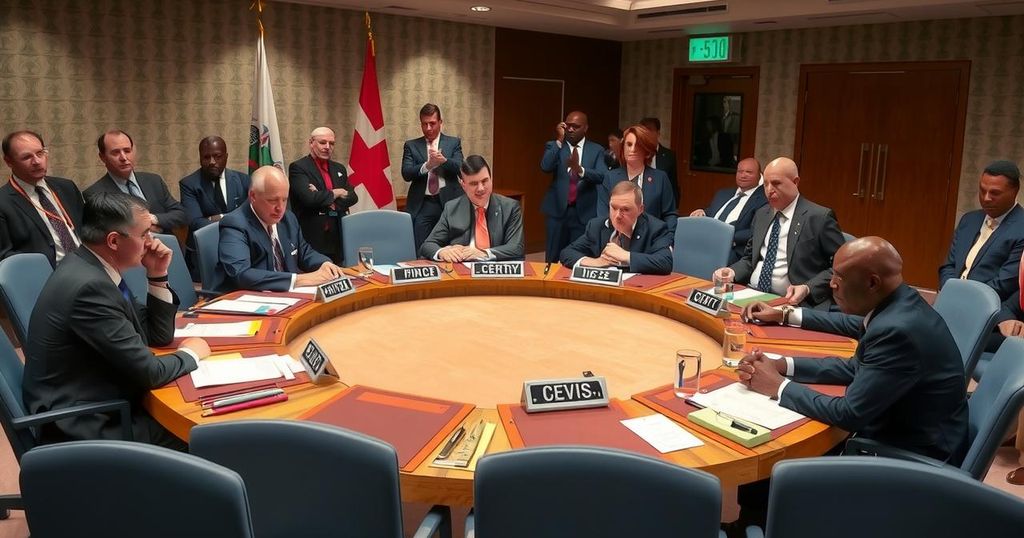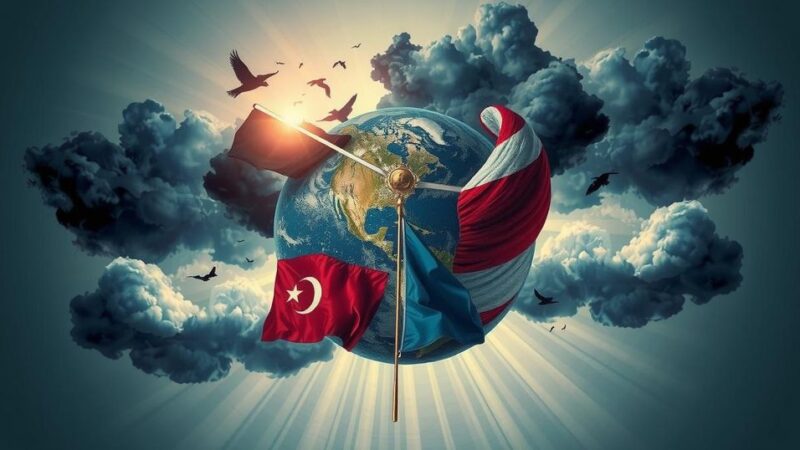The UN Security Council discussed the escalating violence in eastern DRC led by armed groups like ADF and M23. UN Special Representative Bintou Keita called for combined efforts to address instability and acknowledged recent regional mediation successes. The humanitarian situation remains dire with millions displaced while efforts against gender-based violence are ongoing. The emphasis was placed on the necessity of local, national, and regional collaboration for lasting peace.
On Monday, the United Nations Security Council convened to discuss ongoing violence in the eastern regions of the Democratic Republic of the Congo (DRC). The UN Special Representative for the DRC, Bintou Keita, presented her report, highlighting political discord over constitutional reforms and the escalating security situation in the North Kivu and Ituri provinces. She identified four prominent armed groups—ADF, M23, CODECO, and Zaïre—contributing to the instability and commended regional mediation efforts, particularly through the Luanda process led by Angola.
Keita emphasized the need for combined local, provincial, national, and regional initiatives to foster lasting peace, referencing valuable recommendations from armed groups, civil society, and women’s voices gathered at the Nairobi process summit. She also reported on governance reforms initiated post-2022 elections, aimed at improving social services and strengthening the justice system. Additionally, Keita noted significant progress regarding the ceasefire agreement between DRC and Rwanda, which underwent monitoring through the Reinforced Ad-hoc Verification Mechanism (R-AVM).
The violence in the eastern provinces remains alarming, particularly with the M23 group expanding its territorial control and the ADF responsible for numerous civilian deaths. While CODECO and Zaïre’s attacks have decreased, the connection between violence and the exploitation of natural resources persists. Keita encouraged collaboration among nations in the Great Lakes region to combat illicit resource exploitation.
Security challenges have exacerbated humanitarian crises, with approximately 6.4 million displaced individuals in the DRC. Despite the difficulties, there has been notable progress with the 2024 Humanitarian Response Plan—as of now, over 50% funded—a stark improvement compared to last year. Keita also advocated for the rights of survivors of gender-based violence, citing over 90,000 reported cases this year alone, emphasizing the government’s actions to combat impunity.
In her conclusion, Keita underscored the urgent need for significant investments in the welfare of women and people with disabilities in the DRC, echoing their collective demand for lasting peace in the region. Such efforts are essential for enabling displaced communities to return home with dignity, thus reinforcing societal stability and security.
The ongoing violence in eastern DRC, particularly in North Kivu and Ituri, involves multiple armed groups and has escalated due to political instability surrounding constitutional reforms. The UN’s Stabilization Mission (MONUSCO) plays a crucial role in addressing these security challenges while facilitating mediation efforts among regional powers to foster peace. The impact of armed conflict extends to humanitarian crises, including widespread displacement and gender-based violence, necessitating urgent international attention and action.
The UN Security Council meeting highlighted the significant security challenges facing eastern DRC, driven by armed group activities and exacerbated by political and humanitarian crises. Special Representative Bintou Keita’s report reiterated the importance of multi-faceted approaches to peace and stability, emphasizing regional teamwork against violence related to resource exploitation and rallying support for vulnerable populations. The meeting underscored a collaborative commitment to ensuring the DRC can work towards a sustained peaceful future for its citizens.
Original Source: news.un.org






